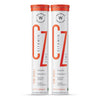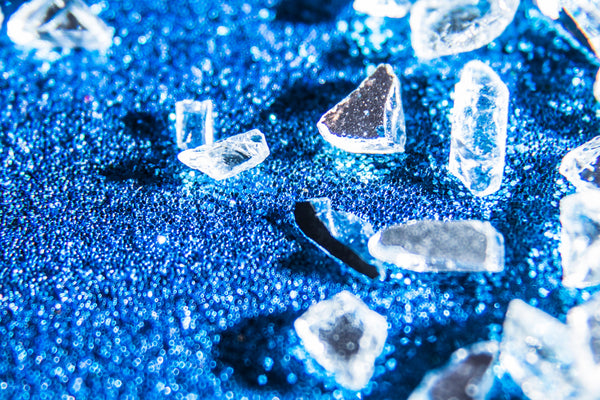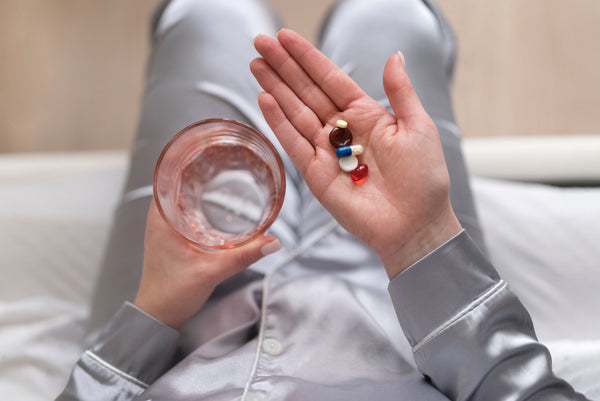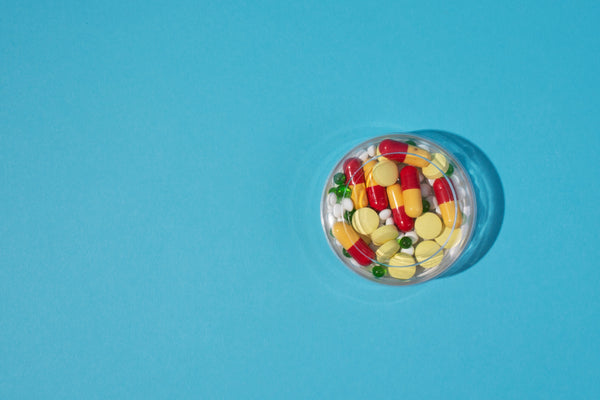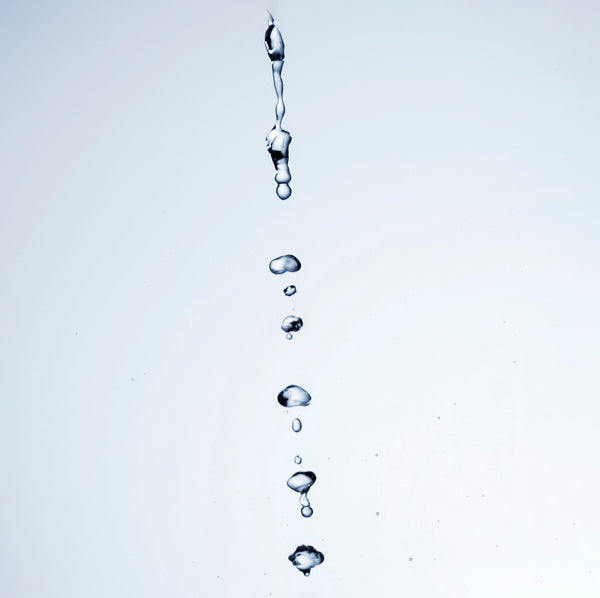Vitamin C, also known as ascorbic acid, has several health benefits. It helps to fight against free radicals, thus prevent cell damage. It is required to keep body tissues and the immune system healthy. Vitamin C also helps the body absorb iron (non-heme) from plant food sources.
Vitamin C is easily found in many fresh fruits and vegetables and green leafy vegetables such as all citrus fruits like oranges, lemon, lime, strawberries, kiwi fruit, bell peppers, green chili, broccoli, kale, and spinach, etc.
found in many fresh fruits and vegetables and green leafy vegetables such as all citrus fruits like oranges, lemon, lime, strawberries, kiwi fruit, bell peppers, green chili, broccoli, kale, and spinach, etc.
How Much Vitamin C Should You Take?
According to ICMR (Indian Council of Medical Research), the recommended dietary allowance (RDA) of vitamin C for the Indian adult population is 40mg/day. However, pregnant women need an extra 20mg/day (i.e. total 60mg daily), whereas breastfeeding women need an extra 4 mg (i.e. total 80mg daily). People who smoke need an additional 35 mg/day above the recommended daily amount for their age. As per research, a daily dose of 500mg of vitamin C is considered safe to consume.
Vitamin C is a water-soluble vitamin, which means that the vitamin does not get stored in the body if consumed in excess. Consequently, it doesn't pose a threat to your health. This means that it won't get stored in the body or result in toxicity if you happen to overconsume foods rich in this micronutrient. However, it is still important not to exceed the safe upper limit of 2,000 mg/day to avoid stomach upset and diarrhea.
‘‘Being a water-soluble nutrient, Vitamin C doesn't get stored in the body. It gets flushed out of the body through excretion, therefore, overdose or toxicity is not a concern.’’
Top Food Sources

As our body cannot make Vitamin C on its own, it must come from the foods we eat every day. Here are the top foods high in Vitamin C:
Vegetables: Red and Green Chili Peppers, Parsley, Thyme, Dark Green Leafy Vegetables including garden cress, kale, mustard greens, Brussels sprouts, cauliflower, carrot, broccoli, potatoes, green chilies, turnip greens, beet greens, mustard greens, collard greens, sweet potatoes, green beans, etc.
Fruits: Guava Blackberries, Strawberries, oranges, sweet lime, lemon, Papaya cherry, kiwi fruit, mango, grapefruit, cantaloupe, Pineapple, Raspberries, etc.
Vitamin C Loss During Cooking
Vitamin C is an extremely sensitive nutrient to heat, light, and air and can thus be easily destroyed during food preparation, cooking, or storage. Many standard cooking methods, like boiling, can cause this water-soluble vitamin C to leach out of food. It means the water in which you boiled spinach or broccoli (which you may have poured down the drain), is rich in Vitamin C.
Boiling reduces the vitamin C content in the food- perhaps more than any other cooking method. Green vegetables like broccoli, lettuce, spinach, and bell pepper may lose up to 50% or more of their vitamin C when boiled.
Research has shown that stir-frying can significantly reduce the amount of vitamin C in broccoli and red cabbage. Whereas steaming broccoli, spinach, and lettuce reduces their vitamin C content by only 9–15%. Meanwhile, microwaving can cause 20–30% of the vitamin C in green vegetables, which is less than most cooking methods.
‘‘Boiling reduces the vitamin C content in the food- perhaps more than any other cooking method. Green vegetables like broccoli, lettuce, spinach, and bell pepper may lose up to 50% or more of their vitamin C when boiled.’’
Tips to Maximize Vitamin C Retention In Food
Here are some tips to reduce the loss of Vitamin C:
- Choose fresh fruits and vegetables that can be eaten in its raw form so that no vitamins are lost through cooking. Use it in salads, juices, smoothies or shakes.
- Use pan-frying, roasting, and searing methods to cook as they do not involve water. Although the food may still lose
 some vitamins (due to heat exposure). However, it will still be less compared to the time water is used for cooking, such as boiling.
some vitamins (due to heat exposure). However, it will still be less compared to the time water is used for cooking, such as boiling. - It is advised to cook foods as fast as possible with less heat and water for better nutrient retention.
- Steaming is one of the best cooking methods for preserving nutrients, including water-soluble vitamins such as vitamin B and C. Scientists have found that steaming green vegetables reduce vitamin C content by only 9–15%.
- Try to eat any cooked vegetables within a day as their vitamin C content may continue to decline when it gets exposed to air.
- Don't use baking soda while cooking vegetables, as that could cause the vitamin C level in them to decline.
‘‘Choose fresh fruits and vegetables that can be eaten in their raw form so that no vitamins are lost while cooking."
Looking for A Vitamin C Supplement?
Although, fresh fruits and green vegetables will always remain as the best sources of vitamin C, it may still fall short of your daily requirement. To top it all, water, air and heat contribute to the destruction of Vitamin C. Thus we may need to fill the nutrition gaps with supplements.
So if you are concerned that you are not getting adequate Vitamin C from foods, consider taking a once-daily supplement that contains Vitamin C + Zinc. This is quite safe, effective, and easy to do.
However, there are a few factors that you may need to keep in mind before choosing a vitamin C or Multivitamin supplement. They are:
- Look for a supplement derived from organic natural whole food sources.

- Choose a supplement in ascorbic acid form, as it has a higher bioavailability rate. In simpler terms, it means that your body will be able to absorb the micronutrient easily and effectively.
- Additionally, choosing vitamin C in the form of ascorbic acid and multivitamins such as zinc, iron, and B Vitamins to boost your vitamin C uptake and your intake of other nutrients.
- To ensure you get an adequate amount of vitamin C from supplements, look for one that provides you with 500mg vitamin C per serving.
Consider Daily-Greens Effervescent tablets. It delivers complete wholefood nutrition, including key vitamins (along with Vitamin C) and antioxidants, in the most natural way. One effervescent tablets serve you 400mg of Vitamin C in the ascorbic acid form. Additionally, the effervescent formula increases the bioavailability.
‘‘Choose Vitamin C in the form of ascorbic acid and multivitamins such as zinc, iron, and B Vitamins to boost your vitamin C uptake and your intake of other nutrients.’’
of nutrients means it activates the nutrients so that it gets absorbed and utilised in body well.
Take Away
Overall, it is probably best to add more raw and fresh fruits and vegetables to your diet and not rely on cooked vegetables to meet your Vitamin C requirement. For better nutrient absorption in cooked food, it is recommended to cook the vegetables at low heat with small amounts of water for a short period to minimize the loss of vitamin C.
You may also consider taking a vitamin C or multivitamin supplement as it is a great, convenient and straightforward way to boost your vitamin C intake if you struggle to get enough from your diet.
References:
- Vitamin C, Jens Lykkesfeldt, Advances in Nutrition Journal, 2014, doi: 10.3945/an.113.005157, (https://www.ncbi.nlm.nih.gov/pmc/articles/PMC3884093/)
- Vitamin C: Overview and Update, Amanda K. Schlueter, MS and Carol S. Johnston, PhD, Journal of Evidence-Based Complementary & Alternative Medicine, DOI: 10.1177/1533210110392951 http://cam.sagepub.com, (https://journals.sagepub.com/doi/pdf/10.1177/1533210110392951)
- Vitamin C, The Nutrition Source, Harvard TH Chan School of Public Health, (https://www.hsph.harvard.edu/nutritionsource/vitamin-c/)
- Effect of different cooking methods on the content of vitamins and true retention in selected vegetables, Seongeung Lee, Youngmin Choi, Heon Sang Jeong, Junsoo Lee, and Jeehye Sung, Food Science and Biotechnology, 2017, doi: 10.1007/s10068-017-0281-1 (https://www.ncbi.nlm.nih.gov/pmc/articles/PMC6049644/)
- Vitamin retention in vegetables submitted to heat treatment, Maria Elisabeth Machado Pinto e Silva, Maria Atzingen, Nutrition & Food Science, 2013, DOI:10.1108/NFS-12-2012-0126, (https://www.researchgate.net/publication/280184339_Vitamin_retention_in_vegetables_submitted_to_heat_treatment)








